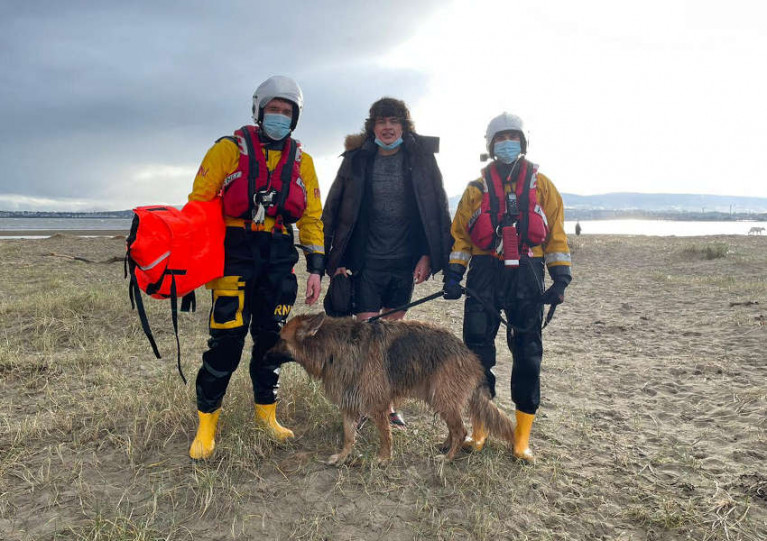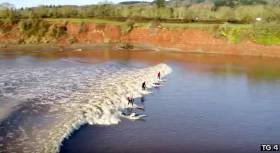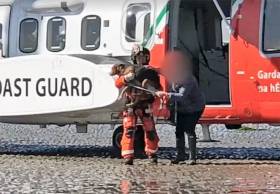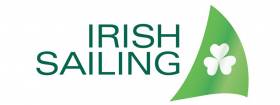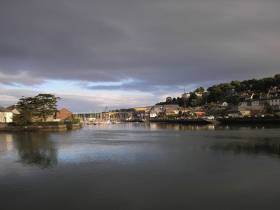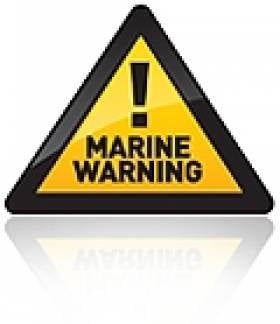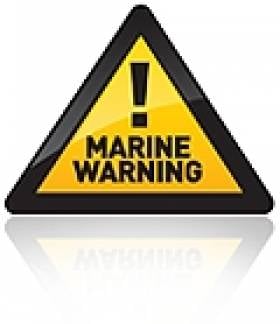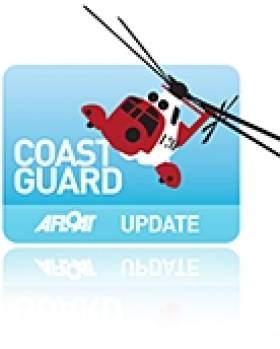Displaying items by tag: tides
Experts have been puzzled by reports of strange tidal activity on the South Coast at the weekend, as TheJournal.ie reports.
On Saturday afternoon (18 June), Union Hall in West Cork saw levels in its harbours drop by as much as 70cm in a mere five minutes, before the waters flooded back — and similar incidents were reported in Wexford and across the Irish Sea in Pembrokeshire.
The bizarre situation has baffled experts, with some suggesting it could be linked to earthquakes off the Azores.
But one oceanographer believes it could be the result of an extremely rare conflation of separate atmospheric events.
Gerard McCarthy told CorkBeo that the surprise tidal moves may be the effect of a meteotsunami — a large wave caused by stormy conditions at sea — combined with the natural sloshing action, or seiching, of the waters at Union Hall.
CorkBeo has more on the story HERE.
Calls for Greater Public Awareness of Tidal Risks After Three Rescued Off Sandymount
Calls have been made for greater public awareness over the risks of incoming tides after three people were rescued off Sandymount earlier this week.
A multi-agency response involving Dun Laoghaire RNLI and the Irish Coast Guard’s Dublin-based helicopter Rescue 116 led to the casualties’ successful retrieval after they became stranded on a sandbank on Tuesday (26 April).
Speaking to Independent.ie, a local councillor called for a major advertising campaign to highlight the dangers of tides at Sandymount, which has become notorious for such incidents.
“This happens far too often and the Coast Guard use a huge amount of resources every year to rescue people who find themselves in this situation,” Fine Gael’s Cllr James Geoghegan said. Independent.ie has more on the story HERE.
The news comes in the same week as a joint appeal from the coastguard, RNLI and Water Safety Ireland to take care when on or near the water this May Bank Holiday weekend, as reported earlier on Afloat.ie.
A dog and his walker were rescued after they got cut off by the tide at Sandymount this afternoon (Thursday 4 February).
Dun Laoghaire RNLI’s inshore lifeboat assisted with recovering the duo from the water and bringing them to safety at Poolbeg beach.
National Ambulance Service paramedics arrived to give the owner a medical check-up.
At the same time, an Irish Coast Guard member and a paramedic gave Hugo the dog some TLC after his dramatic experience, as Hugo can’t swim.
Dun Laoghaire’s coastguard unit reminds the public if you see anyone in difficulty in or near the water, dial 112/999 immediately and ask for the coastguard.
New Irish TV Series on Tides to be Broadcast on TG4 in May
The “power and mystery” of the Earth’s tides is the theme of a new three-part television series involving TG4 and several broadcasters, with Chinese backing writes Lorna Siggins.
Marine Institute scientist MacDara Ó Cuaig is presenting the Irish language version of the series, entitled Taoide, which was filmed across four continents.
The project, involving Chinese production company LIC, was funded by broadcasters TG4, BBC ALBA, BBC Northern Ireland and S4C, and the distribution company Sky Vision.
The consortium describes the three-part series as a “visually stunning exploration” of one of the globe’s most powerful natural forces.
To mark the fact that this year is the International Year of Indigenous Languages, each participating country in the co-production has received its own “bespoke” edit of the documentaries in its own indigenous language.
Television producer/director Donncha Mac Con Iomaire teamed up with Welsh company Cwmni Da to produce the Irish language version for TG4, which Mr Ó Cuaig is presenting.
TG4 says that the collaboration has already inspired the setting up of a new “Celtic Development Fund” to develop similar co-productions.
This series is being distributed in Greater China, Hong Kong, Macau and Taiwan by LIC.
Sky Vision is currently negotiating its sale to other broadcasters worldwide.
Each partner put in around £100,000, according to Cwmni Da managing director Dylan Huws in Wales.
“This means they’re getting a high-end documentary series which has been filmed all over the world,” he said.
“TG4 is delighted to join forces with our broadcasting partners in the other Celtic nations to commission an Irish language version of this ambitious series,” TG4 commissioning editor Proinsias Ní Ghráinne said, adding that the theme has a “particular resonance” for this island.
The first episode of Taoide will be broadcast on TG4 on Wednesday, May 1st, at 9.30pm, with two further episodes on May 8th and 15th.
#Coastguard - Dun Laoghaire Coast Guard was alerted at 10am yesterday morning (Wednesday 16 May) to respond to a woman and her dog who were cut off by the tide on Merrion Strand, near the seaward side of the Dublin incinerator area.
Dublin Coast Guard’s Marine Rescue Coordination Centre (MRCC) activated a procedure with consent to ping the location of the casualty’s phone to give co-ordinates to the responding emergency services.
Dun Laoghaire RNLI and the Dublin-based Irish Coast Guard helicopter Rescue 116 responded to the area and were directed in by the Dun Laoghaire coastguard team.
Rescue 116 proceeded to land on the sand bank while Dun Laoghaire RNLI’s inshore lifeboat stood by to assist. A Dublin Fire Brigade RIB from Dublin Port also responded.
The casualty and her dog were airlifted from the sand bank to awaiting coastguard personal on the beach. After checks by Dublin Fire Brigade paramedics, they were taken back from the beach to land.
Dun Laoghaire Coast Guard noted yesterday’s “very fast” spring tide which caught this dog walker unawares. Tide times for Dublin can be found online HERE.
Irish Sailing Publishes 2018 & 2019 Tide Times
#Tides - Irish Sailing has published the latest tide times for 2018 and 2019 for mariners in Dublin Bay (North Wall), Galway, Belfast and Cork Harbour (Cobh).
All times and related tidal variations (adjusted for Irish Summer Time) are estimates and none are verified by any national hydrographic office, so are to be referred to as a guideline only.
Kinsale Tide Times In A Tweet
#Kinsale - Harbour users in Kinsale can now check tide times online thanks to a new Twitter account.
Kindle Tides (@KinsaleTides) does exactly what the name suggests, tweeting daily with the latest tide information for the Co Cork harbour in an easy-to-use format.
UK Coastguard Warns on Tides and Sea Safety
As the UK Bank holiday approaches the UK coastguard has issed a warning to check tides and stay safe. With the school holidays well underway and the busy bank holiday weekend around the corner, coastguards and the Shipping Minister are coming together to remind families, children and visitors of the importance of checking weather and tide times to stay safe whilst at the beach and along the coast.
Already this summer coastguards have dealt with many beach-related incidents, with a particularly high number of people being caught out by the tide and needing to be rescued after becoming stranded. Since 1st July, almost 150 such rescues have been carried out around the UK coast, with around 80% involving children.
This latest advice is part of an ongoing programme by the Maritime and Coastguard Agency to remind those who visit our coast to have a great time and remain safe. So before you go check out the weather, sea conditions and the tide times (you can find this information on the web or many beaches display it at their entrance). That way you can enjoy the sea safely.
In addition to checking the tide times, remember that inflatable boats and toys can be great fun, but they are more suitable for use in swimming pools than at the beach. If you do use one at the beach, make sure that it is tethered to an adult who is in the sea with you and never use it if there is an offshore wind. Inflatable boats and toys can easily be blown off shore, then overturn. If you are blown out to sea on an inflatable boat or toy wave your arms in the air and shout for help. If you are out of your depth, don't attempt to swim back to shore.
Be careful around cliffs and rocks – they can be slippery and crumbly. Don't climb them unless you are properly kitted out. And don't attempt to rescue people or dogs from cliffs – call 999 and ask for the coastguard.
Coastguards are also encouraging parents, grandparents and other adults to ensure that children are properly supervised on the coast. We deal with numerous cases of lost children every year and it can be very distressing for children and adults alike. Some beaches provide beach band schemes which help to re-unite children with their families if they become separated, so take advantage of these schemes if appropriate.
Try to go to a lifeguarded beach if you can and stay within the flagged area.
If you notice that someone is in difficulty, either alert the lifeguard if one is available or call the Coastguard on 999.
Shipping Minister Mike Penning said:
"As an island nation, enjoying a seaside holiday is a great British tradition. The UK has some of the finest coastline in the world, and I want everyone to be able to enjoy it safely. Already this year we have seen how something as simple as familiarising yourself with the tide times before you set out can make all the difference. That is why I am encouraging anyone thinking of heading for the coast to take a few sensible precautions so they return home safely and with fond memories of a great day out. I would also like to pay tribute to our coastguard staff and volunteers who do such a great job to keep those who use our coastline as safe as possible."
Weekend 'Super Moon' Increases Risk of Strandings
The moon will be at its closest to earth since 1993 on Saturday March 19th.
This "Lunar Perigee", or 'Super Moon' as some astrologers refer to it as, is the opposite of the "Lunar Apogee", when the Moon is furthest from Earth. Generally, the Moon looks about 12-14% larger at its perigee compared to its apogee.
This has the effect of causing very high and low tides, or increasing the range of the tide. This will expose large areas of beach and rocks which we normally don't see. Many people enjoy walking on our beaches and exploring these new areas of beach and in particular people enjoy picking shellfish to eat which become exposed during these very low tides.
The risk to the public will be of becoming stranded as the tide advances back in which can leave people in a position where they are cut off from the shore. Members of the public are cautioned to be aware of this risk and carry your mobile phone. Should you get in to trouble then call 112 or 999 and ask for Marine Rescue, giving your exact location and in particular if you are near to any conspicuous landmarks nearby to assist the Rescue Services in locating your whereabouts.
All seafarers, surfers, swimmers and divers should be aware of the increased tidal streams that will be running around our coast over the weekend; people could find themselves in peril as a result of these strong and fast tidal conditions which have not been experienced for some time now.
RNLI Hovercraft in Rescue of Girl
At 5.30 pm last night Liverpool Coastguard were alerted to a local 15 year old girl in difficulty by the Leasowe Lighthouse on Moreton Common, Wirral, on Merseyside on the far side of the Irish Sea . She was completely cut off by the tide about 100 metres out on the nearby sandbank.
The Hoylake Coastguard Rescue Team were alerted as was the RNLI New Brighton hovercraft and West Kirby inshore lifeboat.
In the meantime the local Coastguard Sector Manager Steve Travis along with his team deployed their mud sled and recovered the girl to dry land.
By 6.30 pm this evening the girl was safely back at home with her mum.
Paul Kirby, Duty Watch Manager at Liverpool Coastguard said
"Our thanks are due to Steve and his team and the RNLI crews from Hoylake and West Kirby for responding so promptly to our call.
As the evenings are now darker after the clocks went back, swift tides and sandbanks can present a major problem for the unwary in the darkness. Please take care when going anywhere near tidal waters and make sure you know the times of the tides."



























